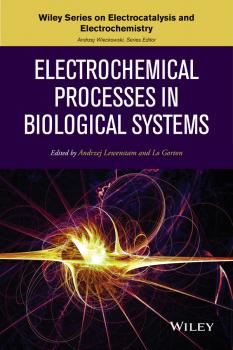Andrzej Wieckowski
Список книг автора Andrzej WieckowskiFuel Cell Catalysis
Wiley Series on Electrocatalysis and Electrochemistry Fuel Cell Catalysis A Surface Science Approach A Core reference on fuel cell catalysis Fuel cells represent an important alternative energy source and a very active area of research. Fuel Cell Catalysis brings together world leaders in this field, providing a unique combination of state-of-the-art theory and computational and experimental methods. With an emphasis on understanding fuel cell catalysis at the molecular level, this text covers fundamental principles, future challenges, and important current research themes. Fuel Cell Catalysis: Provides a molecular-level description of catalysis for low-temperature polymer-electrolyte membrane fuel cells, including both hydrogen-oxygen cells and direct alcohol cells Examines catalysis issues of both anode and cathode such as oxygen reduction, alcohol oxidation, and CO tolerance Features a timely and forward-looking approach through emphasis on novel aspects such as computation and bio-inspiration Reviews the use and potential of surface-sensitive techniques like vibrational spectroscopy (IR, Raman, nonlinear spectroscopy, laser), scanning tunneling microscopy, X-ray scattering, NMR, electrochemical techniques, and more Reviews the use and potential of such modern computational techniques as DFT, ab initio MD, kinetic Monte Carlo simulations, and more Surveys important trends in reactivity and structure sensitivity, nanoparticles, «dynamic» catalysis, electrocatalysis vs. gas-phase catalysis, new experimental techniques, and nontraditional catalysts This cutting-edge collection offers a core reference for electrochemists, electrocatalysis researchers, surface and physical chemists, chemical and automotive engineers, and researchers in academia, research institutes, and industry.
Electrochemical Processes in Biological Systems
The first book to provdie a comprehensive look at bioenergetics, the energy flow in living systems, by studying ion exchange and electron transfer processes in biological membranes and artificial bio-films, and how these processes contribute to developing modern biosensor and ion-sensor technology, as well as biofuel cells. The book: Discusses the ion fluxes and electron transfer processes in biological membranes and artificial bio-films Provides an in-depth description of the processes at the interface between the membrane/film and substrate electrode Is the first of its kind to provide a comprehensive look at how these processes are understood in biology of living cells Addresses how these processes contribute to developing modern biosensor and ion-sensor technology, as well as biofuel cells
Vibrational Spectroscopy at Electrified Interfaces
Reviews the latest theory, techniques, and applications Surface vibrational spectroscopy techniques probe the structure and composition of interfaces at the molecular level. Their versatility, coupled with their non-destructive nature, enables in-situ measurements of operating devices and the monitoring of interface-controlled processes under reactive conditions. Vibrational Spectroscopy at Electrified Interfaces explores new and emerging applications of Raman, infrared, and non-linear optical spectroscopy for the study of charged interfaces. The book draws from hundreds of findings reported in the literature over the past decade. It features an internationally respected team of authors and editors, all experts in the field of vibrational spectroscopy at surfaces and interfaces. Content is divided into three parts: Part One, Nonlinear Vibrational Spectroscopy, explores properties of interfacial water, ions, and biomolecules at charged dielectric, metal oxide, and electronically conductive metal catalyst surfaces. In addition to offering plenty of practical examples, the chapters present the latest measurement and instrumental techniques. Part Two, Raman Spectroscopy, sets forth highly sensitive approaches for the detection of biomolecules at solid-liquid interfaces as well as the use of photon depolarization strategies to elucidate molecular orientation at surfaces. Part Three, IRRAS Spectroscopy (including PM-IRRAS), reports on wide-ranging systems—from small fuel molecules at well-defined surfaces to macromolecular complexes—that serve as the building blocks for functional interfaces in devices designed for chemical sensing and electric power generation. The Wiley Series on Electrocatalysis and Electrochemistry is dedicated to reviewing important advances in the field, exploring how these advances affect industry. The series defines what we currently know and can do with our knowledge of electrocatalysis and electrochemistry as well as forecasts where we can expect the field to be in the future.



